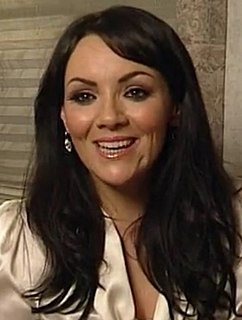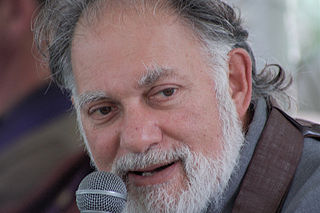A Quote by Maurice Sendak
I'm writing a poem right now about a nose. I've always wanted to write a poem about a nose. But it's a ludicrous subject. That's why, when I was younger, I was afraid of something that didn't make a lot of sense. But now I'm not. I have nothing to worry about. It doesn't matter.
Related Quotes
Writing has nothing to do with publishing. Nothing. People get totally confused about that. You write because you have to - you write because you can't not write. The rest is show-business. I can't state that too strongly. Just write - worry about the rest of it later, if you worry at all. What matters is what happens to you while you're writing the story, the poem, the play. The rest is show-business.
I loathe the trivialization of poetry that happens in creative writing classes. Teachers set exercises to stimulate subject matter: Write a poem about an imaginary landscape with real people in it. Write about a place your parents lived in before you were born. We have enough terrible poetry around without encouraging more of it.
There's something immediate about the experience of reading a poem - whether it's the music or some other element of it - that just seems to access another part of the brain. You know, Charles Olson talks about this transfer of energy that happens between the writer and the reader of the poem. I guess there's something essential to me about acknowledging upfront the immensity of it - the difficulty of it - and even allowing that to be the subject.
As a rule, I am very skeptical of tying books to anniversaries. I don't think readers care. I also feel that it just about guarantees that somebody else will be writing a book on the same subject, but being a former journalist, I'm always interested in, like, why write about something today? Why do it now?
If you're angry, you don't have to write a poem dealing with the cause of your anger. But it needs to be an angry poem. So go ahead... write one. I know you're at least a little bit angry with me. And when you're done with your poem, decipher it as if you'd just found it printed in a textbook and know absolutely nothing about its author. The results can be amazing...and scary. But it's always cheaper than a therapist.
When I was younger, I used to look at movie stars with pencil-thin noses and think about a nose job. I've got a grown-up baby nose; it's not chiseled and structured. Then I saw how beautiful Audrey Tatou was in 'Amelie' and thought, 'She's got a nose like mine, and if she can have a baby nose, so can I.'
A successful poem says what a poet wants to say, and more, with particular finality. The remarks he makes about his poems are incidental when the poem is good, or embarrassing or absurd when it is bad and he is not permitted to say how the good poem is good, and may never know how the bad poem is bad. It is better to write about other people's poetry.
I'm always writing towards a discovery. When I'm writing poems in particular, I'm often writing because a few images coalesced in my mind and I thought, "I wonder why these images are abrading against each other. I wonder what happens if put them in a poem and explore them." I'm trying to learn something every time I write a poem.







































